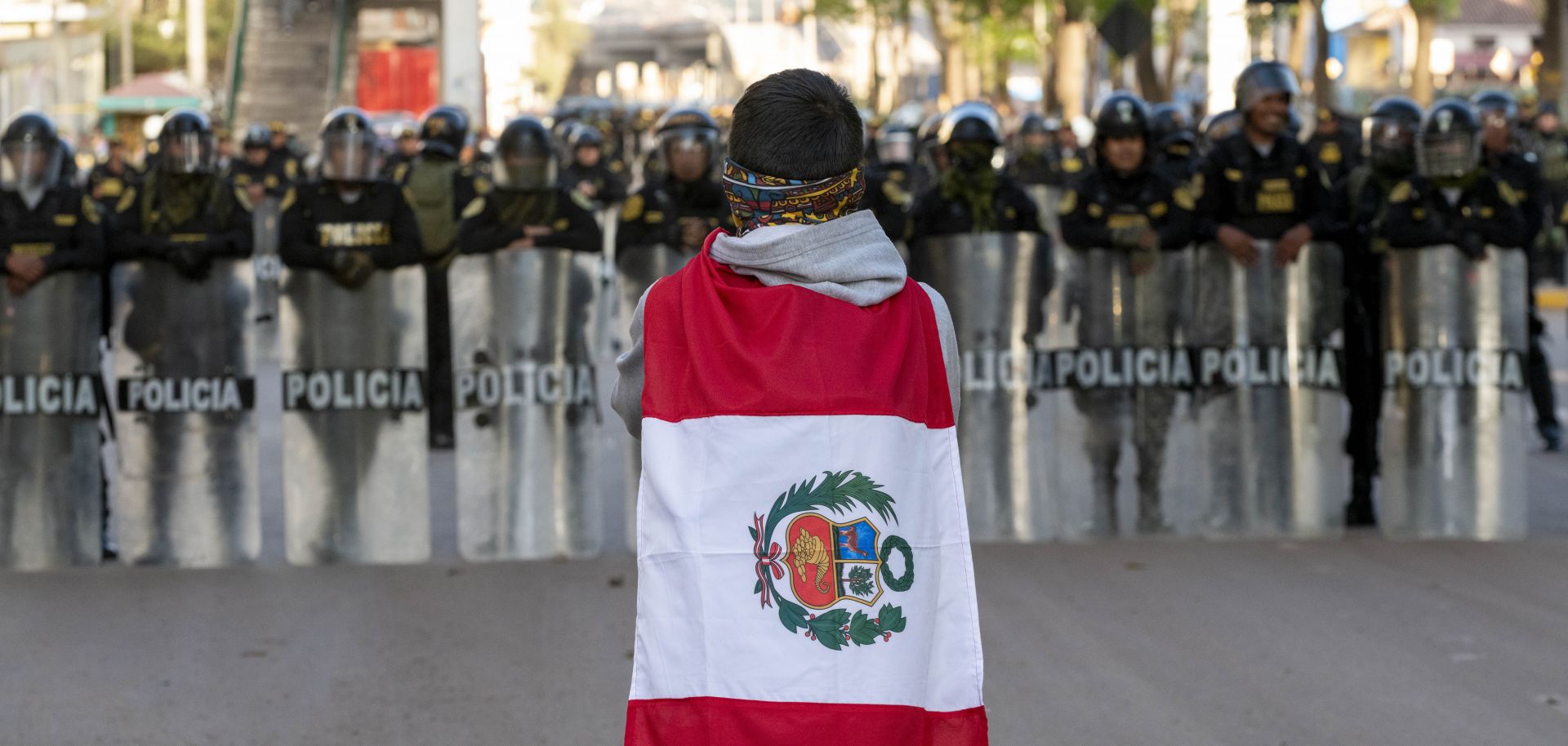Over the next year and a half, Peru's political climate will remain highly volatile and will likely be dictated by attempts to enact constitutional reforms, campaigning for general elections and civil unrest -- leading to economic challenges due to investor concerns and stalled copper production. Protests continue to rage across Peru, two months after the country's former left-wing president Pedro Castillo was impeached and arrested for an attempted self-coup. Since the ex-leader's ousting on Dec. 7, his supporters from rural areas have staged disruptive demonstrations in southern Peru and the capital of Lima, resulting in clashes with police that have so far killed over 50 civilians. Protesters have also targeted transportation nodes including roads, trains and airports, leading to travel and shipping delays. But despite these disruptions, the government has yet to fulfill any of the demonstrators' demands, which include early elections, the dissolution of Congress, Castillo's release and his...

